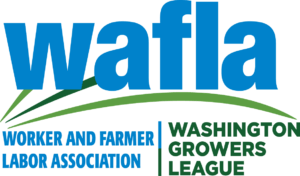Labor Department sets sweeping new H-2A foreign guestworker rule
Labor Department sets sweeping new H-2A foreign guestworker rule
Link to reprinted article on Source ONE News
By Don Jenkins, Capital Press
The U.S. Department of Labor has adopted a new rule it said will protect foreign seasonal farmworkers from being abused, imposing sweeping regulations the head of an agricultural employers association called "offensive."
The rule takes effect June 28 and was set out in a 600-page document Friday. The wide-ranging rule opens farms to union organizers, sets a higher bar for firing workers and mandates seat belts in company vehicles.
Other provisions prohibit employers from confiscating passports or visas and streamlines procedures for ousting farms and labor contractors that violate rules from the H-2A program.
Workers will have to be paid if weather delays the start of harvests, and H-2A wage increases will go into effect the day they're published in the Federal Register.
The rule is a significant milestone in the Biden administration's drive to be the most pro-worker administration in history, Acting Labor Secretary Julie Su said in a statement.
"H-2A workers too frequently face abusive working conditions that undercut all farmworkers in the U.S.," she said.
Besides offensive, the rule is unnecessary and thumbs its nose at the U.S. Supreme Court, said Michael Marsh, president and CEO of the National Council of Agricultural Employees.
Current regulations already punish employers that violate H-2A rules, Marsh said. The new rule, he said, "goes after all the farmers."
The rule will allow invited lawyers and union organizers to visit farmworker housing. The rule circumvents a 2021 Supreme Court ruling striking down a California law that gave union organizers access to farms, Marsh said.
"I think it will be challenged. I don't think it can survive legal scrutiny," he said.
UFW thanks Biden
Farms can apply to hire H-2A guestworkers if not enough U.S. farmworkers are available. The Labor Department certified 378,513 H-2A positions in the fiscal year that ended Sept. 30.
Washington had the fourth-largest number of H-2A positions, 35,680, trailing only Florida, California and Georgia. As the program has grown, so have allegations that foreign workers, mostly from Mexico, are vulnerable, or that they displace U.S. farmworkers.
The United Farm Workers and the UFW Foundation said in a statement the rules create safeguards for U.S. and foreign farmworkers. The federal government's power has sided with farmworkers, UFW President Teresa Romero said.
"We are encouraged by the leadership of Acting Secretary Julie Su and the Biden-Harris administration in stepping up to meet this moral crisis at the heart of American agriculture," she said.
More complexity
The department sets minimum H-2A wages to ensure American wages aren't undercut. In Washington and Oregon, the minimum H-2A wage is $19.25 an hour. In California, it's $19.75 an hour. In Idaho, it's $16.54.
Farmers have to house foreign workers in state-inspected housing and abide by contracts.
"I think there are plenty of protections in the existing rules," said Scott Dilley, labor policy analyst for WAFLA, a Washington-based supplier of H-2 workers.
"Agricultural employment is becoming increasingly complicated and bureaucratic. This rule adds to that," he said.
"Everybody is going to be talking about this for weeks," Dilley said. "This further demonstrates that the Department of Labor really isn't concerned about the viability of agriculture across the U.S."
The Labor Department proposed the rule in September. Washington Attorney General Bob Ferguson, a candidate for governor, joined nine other state attorneys general in sending a letter urging the department to adopt the rule.
Ferguson and the other AGs claimed "labor violations are rampant in the agricultural industry," citing a study by the Economic Policy Institute, a progressive think tank partly funded by labor unions.
The rule protects workers engaging in "self-organization or concerted activities" and allows them to decline attending meetings where employers discourage them from joining unions, the Labor Department stated.
